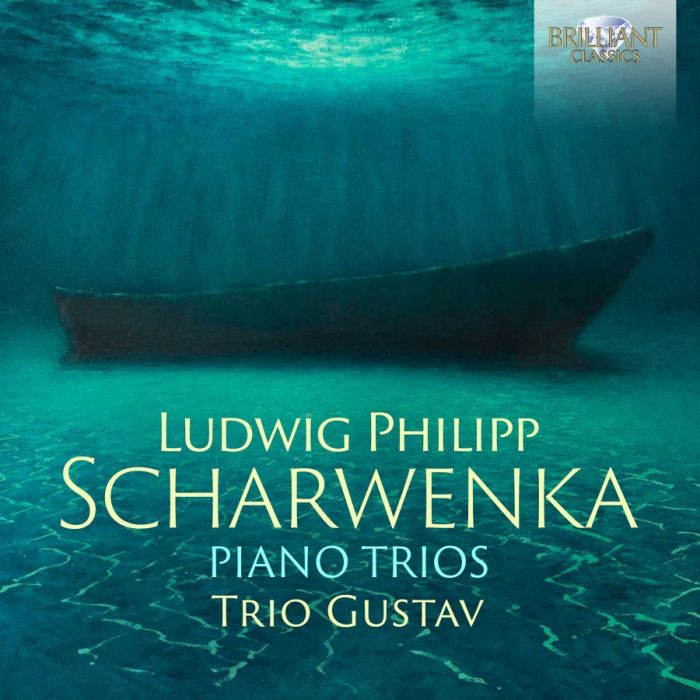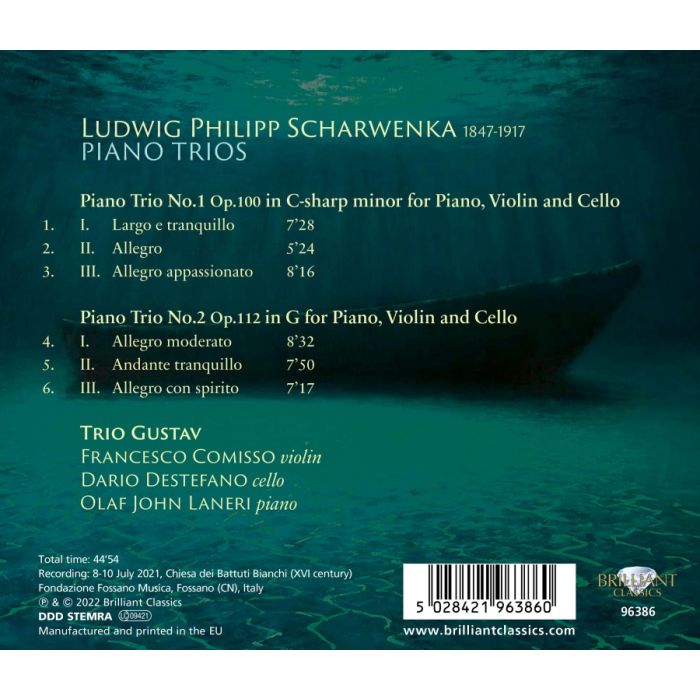
(Produkt nie został jeszcze oceniony)
kompozytor
Scharwenka, Ludwig Philipp
tytuł
Scharwenka: Piano Trios
wykonawcy
Trio Gustav
nr katalogowy
96386
opis
Ludwig Philipp Scharwenka (1847-1917) was born in eastern Prussia (now part of Poland) in the town of Samter to a family with ancient Bohemian roots, but determinedly German in its culture. He and his brother Xaver (1850–1924) received their first music lessons from their mother and from the cantor at the local protestant church. In 1865, once they had finished high school, his family moved to Berlin, where the two young men were admitted to the Neue Akademie der Tonkunst, founded by the renowned pianist (and one-time pupil of Carl Czerny) Theodor Kullak. Philipp was given a job teaching theory at the academy, and in 1874 he began composing in earnest. The following year he founded his own school with his brother, where he would teach composition for the rest of his life. Xaver, who became a famous soloist, later created a branch of their conservatoire in New York, and gave his brother a teaching role there (1891–2). Philipp returned to Berlin and in 1901 became a member of the Prussian Academy of Arts.
Scharwenka’s Piano Trios are firmly rooted in the German Romantic language of Brahms and his contemporaries, a tight harmonic basis provides sweeping romantic melodies and by times a touching lyricism.
The Trio Ludwig devote themselves both to the great chamber literature for trio and to the hidden treasures of the Italian chamber repertoire. Their instrumental virtuosity, together with the international concert experience of the three interpreters, merge together so as to charge every performance with energy and elegance.
nośnik
CD x 1
wydawca
Brilliant Classics
data wydania
1.06.2022
EAN / kod kreskowy
5028421963860
55,00 zł
Produkt na zamówienie
Wysyłka ustalana indywidualnie.
Darmowa wysyłka dla zamówień powyżej 300 zł!
Darmowy kurier dla zamówień powyżej 500 zł!
sprawdź koszty wysyłki
